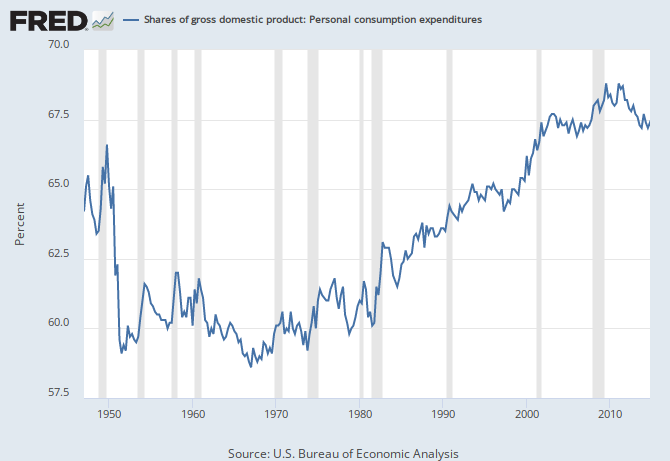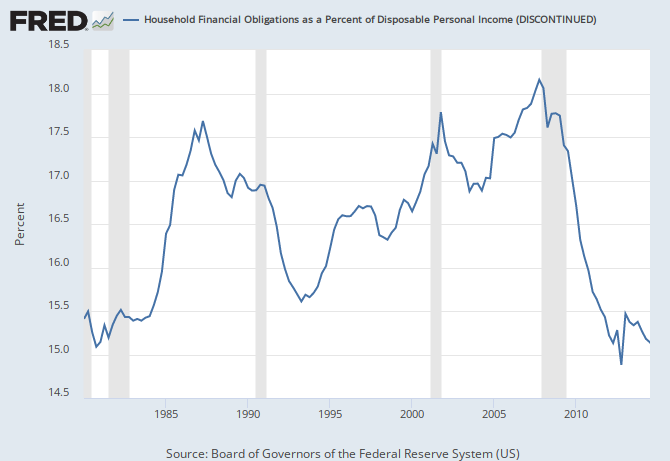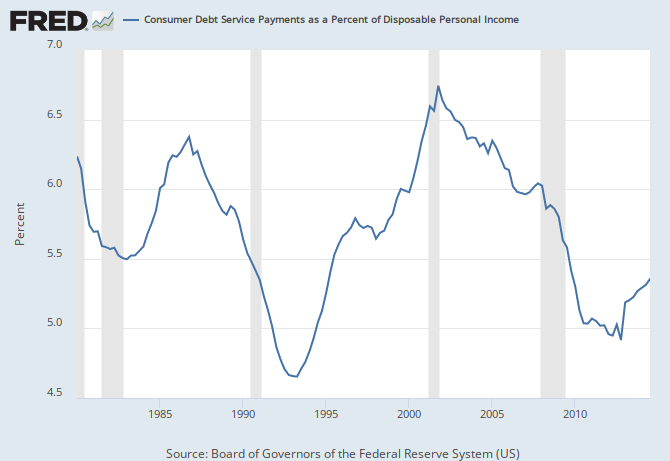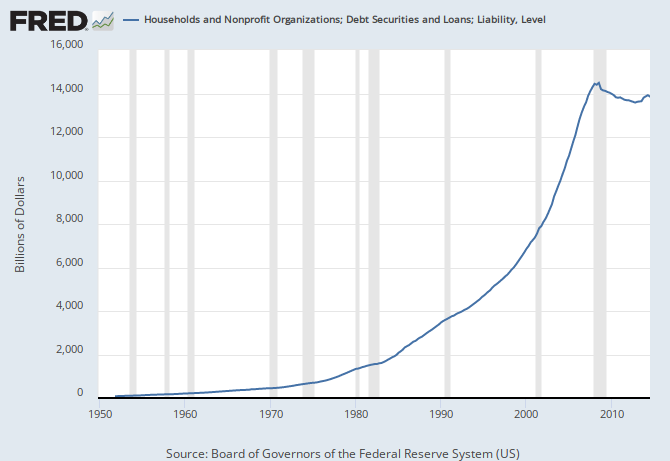Is personal debt restraining economic expansion? Many pundits talk about the debt unwinding cycle not being complete from the Great Recession. Is there some magic formula for deciding if debt levels are too high and need unwinding? Is there historical data which supports a certain debt level being optimum? Total household debt is shown as over 120% of GDPÂ which seems like a large number (and is larger than several advanced economies).

Â
Consider that the size of USA household debt is within the range of the Eurozone countries.

Consumer or household debt is an important topic for the USA economy as it is much more consumer driven than Asia or Europe.

From the mid-1960s to the Great Recession, the consumer’s share of the USA economy increased. Since the end of the Great Recession, consumers’ portion of the economy has remained in a tight range. To put framework on the discussion of debt – debt is described in various terms:
- total household debt
- mortgage debt
- consumer debt (total household debt less mortgage debt)
Because of very low interest rates, repayments of existing loans are taking a smaller and smaller portion of household income – and near historical lows.

Consumer debt, even though requiring a historically small portion of income to service (re-pay), is now growing.

Graphically most pundits toss out the total household debt graphs to “prove” there is a debt problem.

However, there is a difference between mortgage debt and consumer debt – and the way one views these “debts” should be different. Mortgage debt is on an asset which generally does not depreciate in value (exceptions are the two depressions – the years leading up to and including Great Depression and the Great Recession). Further, mortgage debt is long term and generally proximates the household spending one would have if one rented rather than purchased their primary residence. Although mortgages are considered debt, they could be described as a long term lease obligation where at the end of the day you own your home.

